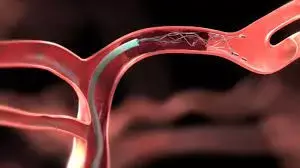- Home
- Medical news & Guidelines
- Anesthesiology
- Cardiology and CTVS
- Critical Care
- Dentistry
- Dermatology
- Diabetes and Endocrinology
- ENT
- Gastroenterology
- Medicine
- Nephrology
- Neurology
- Obstretics-Gynaecology
- Oncology
- Ophthalmology
- Orthopaedics
- Pediatrics-Neonatology
- Psychiatry
- Pulmonology
- Radiology
- Surgery
- Urology
- Laboratory Medicine
- Diet
- Nursing
- Paramedical
- Physiotherapy
- Health news
- Fact Check
- Bone Health Fact Check
- Brain Health Fact Check
- Cancer Related Fact Check
- Child Care Fact Check
- Dental and oral health fact check
- Diabetes and metabolic health fact check
- Diet and Nutrition Fact Check
- Eye and ENT Care Fact Check
- Fitness fact check
- Gut health fact check
- Heart health fact check
- Kidney health fact check
- Medical education fact check
- Men's health fact check
- Respiratory fact check
- Skin and hair care fact check
- Vaccine and Immunization fact check
- Women's health fact check
- AYUSH
- State News
- Andaman and Nicobar Islands
- Andhra Pradesh
- Arunachal Pradesh
- Assam
- Bihar
- Chandigarh
- Chattisgarh
- Dadra and Nagar Haveli
- Daman and Diu
- Delhi
- Goa
- Gujarat
- Haryana
- Himachal Pradesh
- Jammu & Kashmir
- Jharkhand
- Karnataka
- Kerala
- Ladakh
- Lakshadweep
- Madhya Pradesh
- Maharashtra
- Manipur
- Meghalaya
- Mizoram
- Nagaland
- Odisha
- Puducherry
- Punjab
- Rajasthan
- Sikkim
- Tamil Nadu
- Telangana
- Tripura
- Uttar Pradesh
- Uttrakhand
- West Bengal
- Medical Education
- Industry
Antithrombotics administration during endovascular Stroke treatment not entirely safe: Lancet

Antithrombotics are dangerous during stroke thrombectomy, according to a recent study published in the Lancet. Therefore giving Antithrombotics like IV aspirin and/or unfractionated heparin during endovascular stroke treatment does not seem to be a good idea reveals the MR CLEAN-MED trial.
Aspirin and unfractionated heparin are often used during endovascular stroke treatment to improve reperfusion and outcomes. However, the effects and risks of antithrombotics for this indication are unknown. They, therefore, aimed to assess the safety and efficacy of intravenous aspirin, unfractionated heparin, both, or neither started during endovascular treatment in patients with ischaemic stroke.
Researchers did an open-label, multicentre, randomised controlled trial with a 2 × 3 factorial design in 15 centres in the Netherlands. We enrolled adult patients (ie, ≥18 years) with ischaemic stroke due to an intracranial large-vessel occlusion in the anterior circulation in whom endovascular treatment could be initiated within 6 h of symptom onset. Eligible patients had a score of 2 or more on the National Institutes of Health Stroke Scale, and a CT or MRI ruling out intracranial haemorrhage. Randomisation was done using a web-based procedure with permuted blocks and stratified by centre. Patients were randomly assigned (1:1) to receive either periprocedural intravenous aspirin (300 mg bolus) or no aspirin, and randomly assigned (1:1:1) to receive moderate-dose unfractionated heparin (5000 IU bolus followed by 1250 IU/h for 6 h), low-dose unfractionated heparin (5000 IU bolus followed by 500 IU/h for 6 h), or no unfractionated heparin. The primary outcome was the score on the modified Rankin Scale at 90 days. Symptomatic intracranial haemorrhage was the main safety outcome. Analyses were based on intention to treat, and treatment effects were expressed as odds ratios (ORs) or common ORs, with adjustment for baseline prognostic factors. This trial is registered with the International Standard Randomised Controlled Trial Number, ISRCTN76741621.
The findings of the study are:
Between Jan 22, 2018, and Jan 27, 2021, we randomly assigned 663 patients; of whom, 628 (95%) provided deferred consent or died before consent could be asked and were included in the modified intention-to-treat population. On Feb 4, 2021, after unblinding and analysis of the data, the trial steering committee permanently stopped patient recruitment and the trial was stopped for safety concerns. The risk of symptomatic intracranial haemorrhage was higher in patients allocated to receive aspirin than in those not receiving aspirin (43 [14%] of 310 vs 23 [7%] of 318; adjusted OR 1·95 [95% CI 1·13–3·35]) as well as in patients allocated to receive unfractionated heparin than in those not receiving unfractionated heparin (44 [13%] of 332 vs 22 [7%] of 296; 1·98 [1·14–3·46]). Both aspirin (adjusted common OR 0·91 [95% CI 0·69–1·21]) and unfractionated heparin (0·81 [0·61–1·08]) led to a non-significant shift towards worse modified Rankin Scale scores.
Thus, Periprocedural intravenous aspirin and unfractionated heparin during endovascular stroke treatment are both associated with an increased risk of symptomatic intracranial haemorrhage without evidence for a beneficial effect on functional outcome.
Reference:
https://www.thelancet.com/journals/lancet/article/PIIS0140-6736(22)00014-9/fulltext
Dr. Shravani Dali has completed her BDS from Pravara institute of medical sciences, loni. Following which she extensively worked in the healthcare sector for 2+ years. She has been actively involved in writing blogs in field of health and wellness. Currently she is pursuing her Masters of public health-health administration from Tata institute of social sciences. She can be contacted at editorial@medicaldialogues.in.
Dr Kamal Kant Kohli-MBBS, DTCD- a chest specialist with more than 30 years of practice and a flair for writing clinical articles, Dr Kamal Kant Kohli joined Medical Dialogues as a Chief Editor of Medical News. Besides writing articles, as an editor, he proofreads and verifies all the medical content published on Medical Dialogues including those coming from journals, studies,medical conferences,guidelines etc. Email: drkohli@medicaldialogues.in. Contact no. 011-43720751


